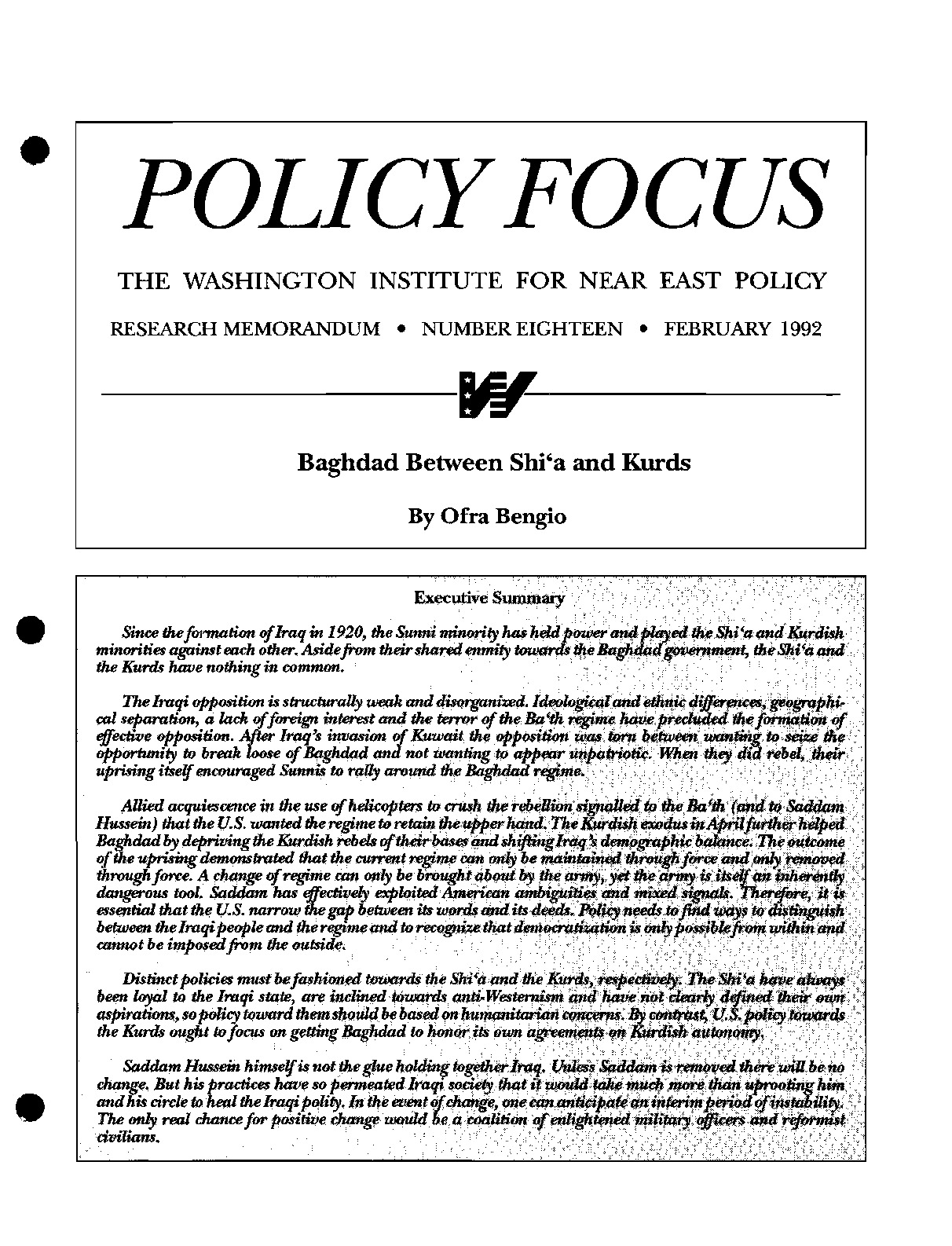Executive Summary
Since the formation of Iraq in 1920, the Sunni minority has held power and played the Shi'a and Kurdish minorities against each other. Aside from their shared enmity towards the Baghdad government, the Shi'a and the Kurds have nothing in common.
The Iraqi opposition is structurally weak and disorganized. Ideological and ethnic differences, geographical separation, a lack of foreign interest and the terror of the Ba'th regime have precluded the formation of effective opposition. After Iraq's invasion of Kuwait the opposition was torn between wanting to seize the opportunity to break loose of Baghdad and not wanting to appear unpatriotic. When they did rebel, their uprising itself encouraged Sunnis to rally around the Baghdad regime.
Allied acquiescence in the use of helicopters to crush the rebellion signalled to the Ba'th (and to Saddam Hussein) that the U.S. wanted the regime to retain the upper hand. The Kurdish exodus in April further helped Baghdad by depriving the Kurdish rebels of their bases and shifting Iraq's demographic balance. The outcome of the uprising demonstrated that the current regime can only be maintained through force and only removed through force. A change of regime can only be brought about by the army, yet the army is itself an inherently dangerous tool. Saddam has effectively exploited American ambiguities and mixed signals. Therefore, it is essential that the U.S. narrow the gap between its words and its deeds. Policy needs to find ways to distinguish between the Iraqi people and the regime and to recognize that democratization is only possible from within and cannot be imposed from the outside.
Distinct policies must be fashioned towards the Shi'a and the Kurds, respectively. The Shi'a have always been loyal to the Iraqi state, are inclined towards anti-Westernism and have not clearly defined their own aspirations, so policy toward them should be based on humanitarian concerns. By contrast, U.S. policy towards the Kurds ought to focus on getting Baghdad to honor its own agreements on Kurdish autonomy.
Saddam Hussein himself is not the glue holding together Iraq. Unless Saddam is removed there will be no change. But his practices have so permeated Iraqi society that it would take much more than uprooting him and his circle to heal the Iraqi polity. In the event of change, one can anticipate an interim period of instability. The only real chance for positive change would be a coalition of enlightened military officers and reformist civilians.
27 pages



